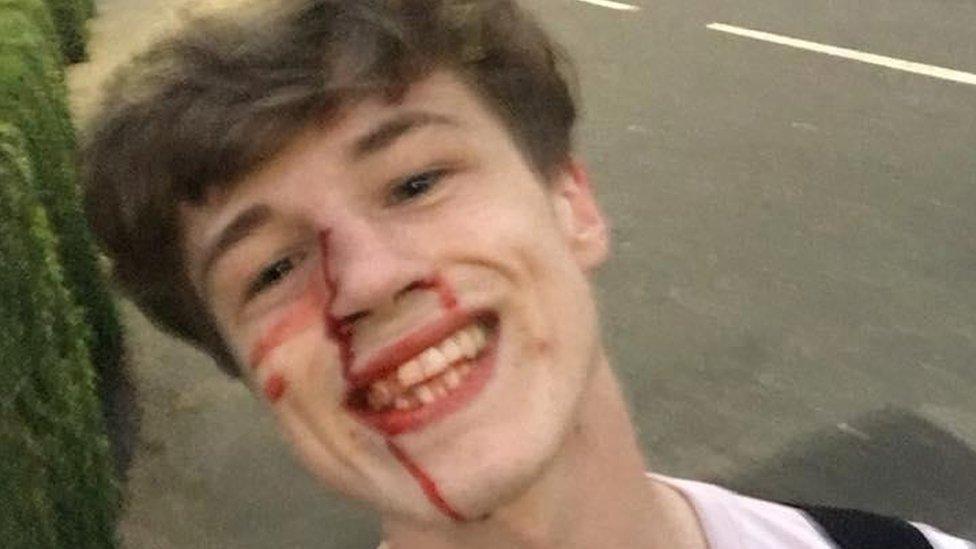Religious hate crimes: Rise in offences recorded by police
- Published
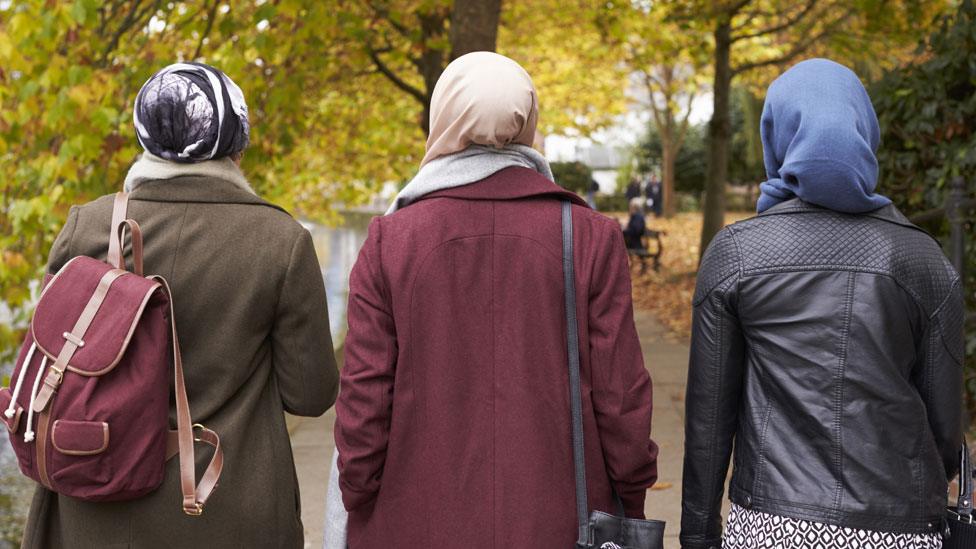
Police have recorded a surge in hate crime directed at people in England and Wales because of their religious beliefs.
It rose by 40%, from 5,949 in 2016-17 to 8,336 in 2017-18, according to the Home Office data, external.
Most religious hate crime - 52% of all offences - was aimed at Muslims.
But the separate Crime Survey of England and Wales, which is a broader measure of people's experience of crime, showed no rise.
According to Home Office data, the total number of hate incidents reached a record 94,098 from April 2017 to March 2018 - a rise of 17% from the previous year.
Just over three-quarters of those - a total of 71,251 - were classified as "race hate".
Hate crime is defined as an offence which the victim considers to be driven by hostility towards their race, religion, sexual orientation, disability or transgender identity.
It can include verbal abuse, intimidation, threats, harassment, assault and bullying, as well as damage to property.
The religions that police count hate crimes for are: Buddhist; Christian; Hindu; Jewish; Muslim and Sikh. They also have categories of "no religion", "other" and "unknown".
Crimes targeted at people because of their sexual orientation made up 12% of the total (11,638), with religious hatred at 9%, disability hate 8% (7,226) and transgender hate crimes 2% (1,651).
According to the police figures, the number of hate crimes has more than doubled since 2012/13, when 42,255 were recorded.
It is partly because of improvements in the way crimes are reported, but there have also been spikes of hate crime after events like the Brexit referendum and the terror attacks last year.
People's experience of hate crime, captured in the Crime Survey of England and Wales, has gone down steadily in the last 10 years.
The Home Office report said the large increases in police recorded hate crime "may suggest that increases are due to the improvements made by the police into their identification and recording of hate crime offences and more people coming forward to report these crimes rather than a genuine increase".
And one quirk of the figures is that a single hate crime offence can be recorded more than once if it is deemed to have multiple motivations - for example, if an individual feels that they were targeted because of their race and their religion.

Usman Ahmed, a Muslim, told the BBC he first experienced hate crime two years ago, when someone shouted abuse at him that referred to the Islamic State group.
"At first I was shocked and then confused as nothing like this had ever happened to me before," said the 19-year-old, from Luton.
"But the more I thought about it, the angrier I got. I kept thinking what had I done to deserve this?"
The Home Office has also announced a review into whether offences motivated by misandry - prejudice against men - should be classed as hate crimes. If so, it could lead to tougher sentences.
Ageism and hatred of certain alternative cultures, such as Goths or punks, could also be included in future.
Yvette Cooper, chairwoman of the Home Affairs Select Committee, welcomed the government's strategy but added: "More action is needed, especially online."
It was also announced on Tuesday that despite the increase in recorded crime, the number of completed prosecutions fell from 14,480 in 2016/17 to 14,151 in 2017/18 - a drop of 329, or 2.3%.
The Crown Prosecution Service said the conviction rate in hate crime cases was 84.7%, up from 83.4% the previous year.

Analysis
By Dominic Casciani, BBC home affairs correspondent
Today's figures are the first official national count of the perceived religious target of a hate crime since ministers ordered all police forces to keep a tally. It provides some real depth to a complex and little understood phenomenon.
The number of offences targeted at Muslims or Jews was far greater than their respective proportions of the population of England and Wales.
The detailed monthly figures also confirm what experts have long said - that moments of tension such as the 2016 Brexit vote, terrorism incidents or international crises trigger short-term "spikes" in hate.
And the figures reveal that people who are targeted at home are twice as likely to be repeatedly victimised than those accosted in the street, because abusers will keep coming back.
Police recorded 237 incidents where the perceived target religion was "no religion" at all. The Home Office told the BBC that it didn't know why some religious hate crimes had been recorded as "no religion" and that the figures were "experimental".
Experts like Humanists UK say this group includes victims who have either left a faith, sparking a backlash from former co-believers, and those who had no faith in the first place.
One element these figures simply don't cover is sectarianism - where one branch or sect of a faith targets another. While this is fully understood in Northern Ireland, it goes less noticed in the UK, despite the fact that it does happen.
There is definitely evidence of tensions between some Sunni and Shia Muslims, the two traditions of Islam, and documented persecution of the separate small Ahmadiyya community, which is theologically rejected by others.
- Published16 October 2018
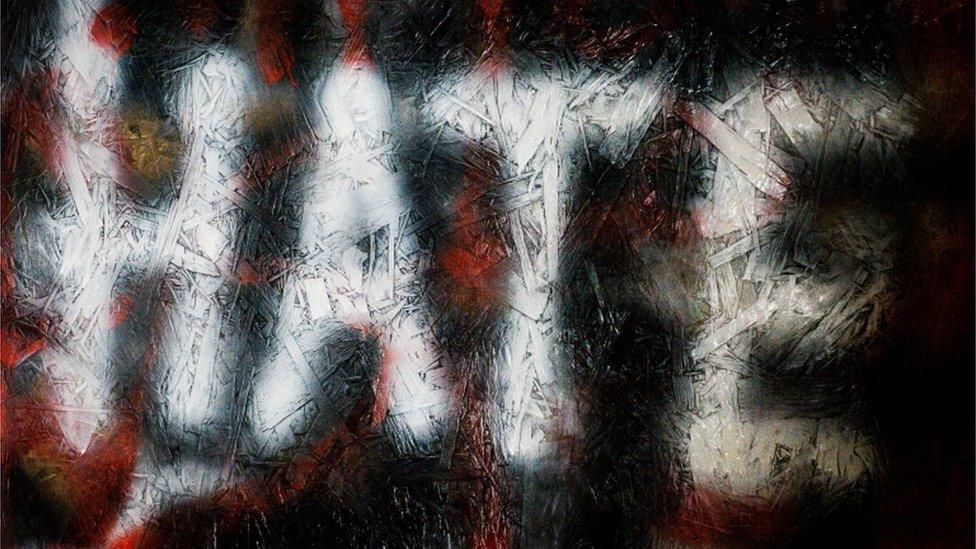
- Published23 July 2018
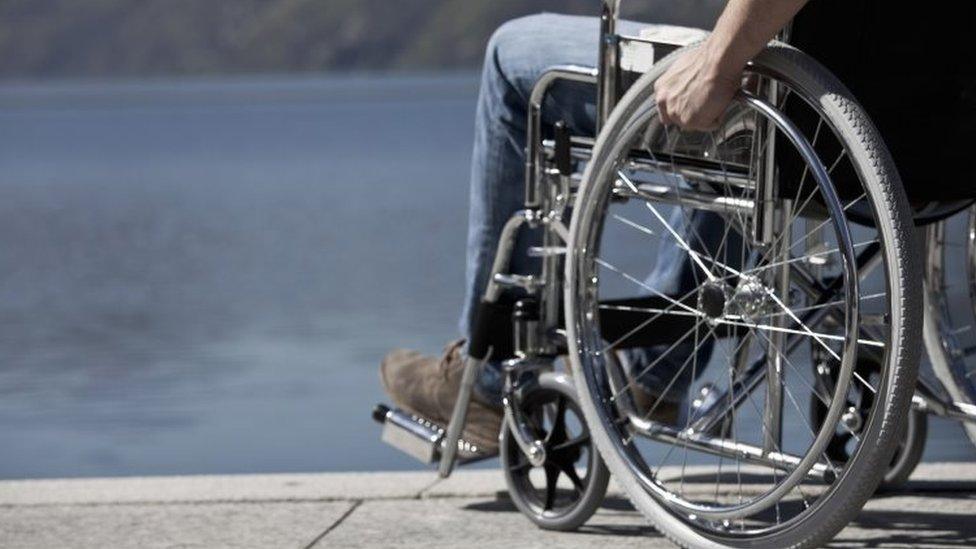
- Published19 July 2018
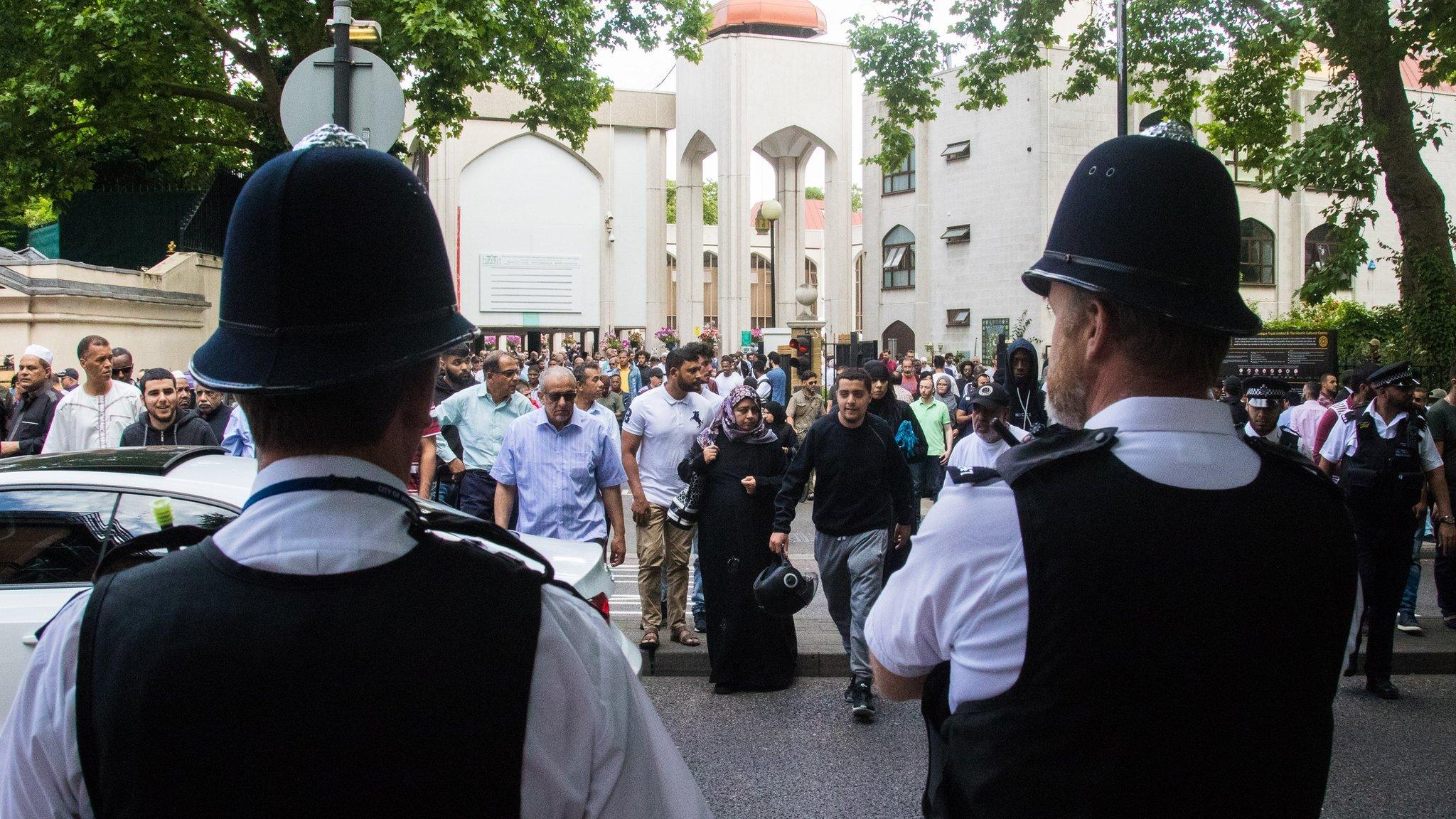
- Published13 July 2018
